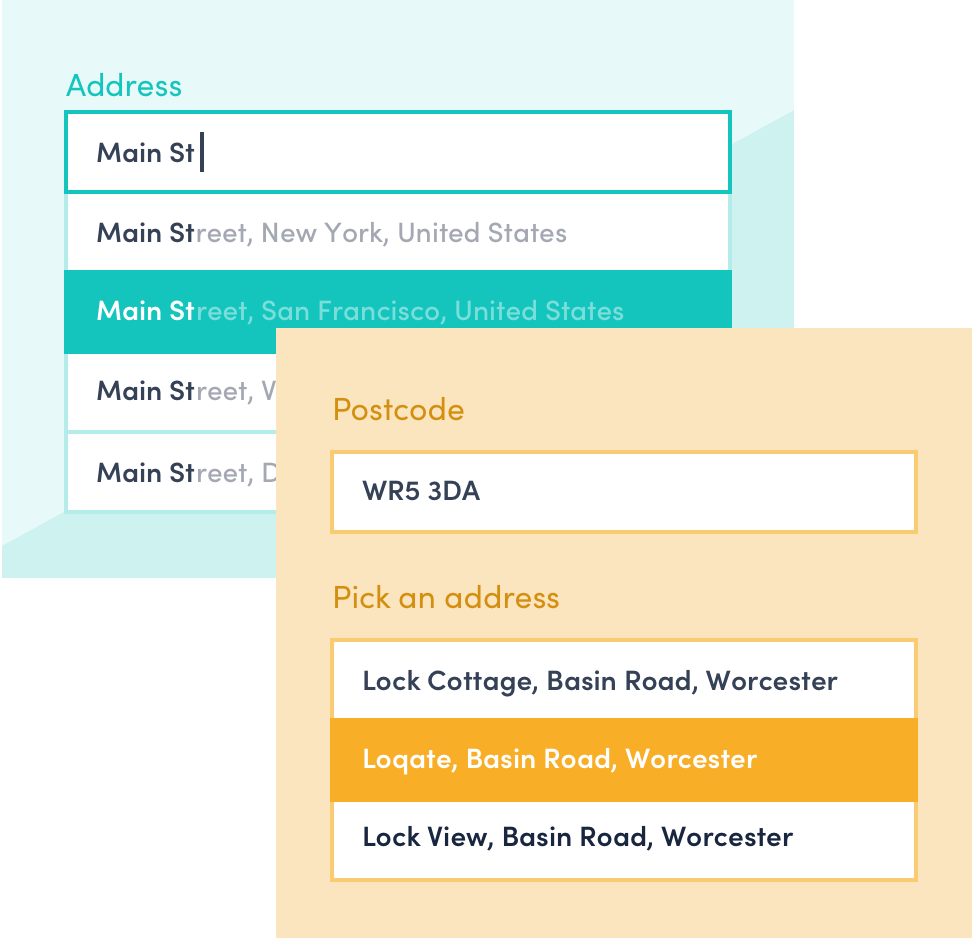Validating Addresses With Software

At A Glance
Advancements in software have made it possible to validate addresses in near real-time. This capability enables organizations to minimize the potential for error while meeting the needs of customers, faster.
The process for validating addresses takes place using an application programming interface (API). With this technology, software systems communicate relevant information with each other.
Validating Addresses Overview
The Importance Of Address Validation
The digital-first global economy is booming. Within this landscape, organizations are under pressure to meet the needs of their customers at record-speeds. A by product of fast-moving markets is the increased potential for risk, especially with regards to human error, fraud, and miscommunication between technical systems.
The practice of validating addresses is one of these methods that can prevent multiple problems within a business, including:
- Delivery errors resulting from customer typos
- Miscommunication in delivery time estimates
- A poor user experience caused by long and arduous onboarding or checkout processes
Address validation also has use cases for marketing, customer insights, and financial services. The information in an address validation string communicates rich demographic data, which can help organizations make data-driven decisions.
Choosing The Right Solution
Businesses collect address data for different purposes ranging from planning to invoicing, onboarding and order management. Address verification provides an extra layer of due diligence, to prevent operational errors and improve the speed of meeting customers’ needs.
When choosing an address verification API, businesses will need to give careful consideration to the types of solutions available. Here is some criteria to evaluate:
- Where your customers are based
- Whether your business is consumer or commercial facing
- What types of challenges may exist in your business
- What level of technical sophistication your company requires
- Ease of use
- Data Quality and Coverage
Validating Addresses In Retail
With eCommerce playing a greater role for many retailers, address verification can help to secure on-time deliveries and validate customer data. In digital environments, address verification enables e-tailers to manage high-volume transactions.
In physical environments, this technology is essential for supporting social distancing measures in environments where people need to pass through quickly. For in-store scenarios, address verification supports the speedy and accurate capture of addresses. Increasingly, in-store retail assistants are using specialty EPOS & mobile POS retail software to efficiently capture accurate data from their customers.
Retail Use Cases For Validating Addresses
Address validation software supports a variety of retail use cases. These include, but are not limited to, the following:
- Customer account creation - Reduce the length and complexity of online forms, and the need to double-check for errors
- Personalized experiences - Ensure that shoppers have a tailored shopping experience that supports a long-term relationship
- Point of sale (POS) optimization - Create a single customer view with a consistent checkout experience across all physical and digital points of sale. Create efficiencies for in-store and contact center personnel.
- Order management - Gather accurate addresses, give customers correct information about available delivery options, and make sure delivery timescales are met
- Establish and maintain one central accurate customer record - correctly categorize and understand audience segments
- Globalize - Properly manage the large variety of address formats that arise in international commerce
- Speed and accuracy - Improve mobile conversions by pre-populating addresses and avoiding typos
Key Revenue Outcomes
Address verification has a direct impact on your business’s revenue optimization strategy. With so many touchpoints, exchanges of data, and service expectations in modern commerce, retailers need automation to stay relevant in today’s economy. Validating addresses will bring the following benefits to a retail organization:
- Reduce shopping cart abandonment - Simplify the amount of information that buyers need to enter to complete a purchase, and reduce the time it takes to complete online checkouts
- Manage risks around credit card fraud - Cross-check user addresses against billing addresses in record from an issuing bank to promptly deny an inaccurate transaction
- Create artificial intelligence capabilities - Ensure good data hygiene when creating and training algorithms
- Enhance product sourcing - Establish capabilities for customers to purchase items out of stock online by locating them in-stores near them
- Promote customer loyalty - Use address verification within your customer relationship management (CRM) system and master data management database to optimize communication
- Ensure product warranties - Carry out repairs and replacements quickly and efficiently
- Protect brand reputation - Ensure an optimal fulfillment and delivery strategy
- Pinpoint locations - Use customer address information to choose optimal locations for new stores
Real-Time Commerce
eCommerce makes it possible for global business to occur in real-time. For this reason, address verification APIs need to support rapid, instantaneous information transfers by being easy to use and scalable.
Address validation technology has real-time use cases across industries ranging from eCommerce, finance, gaming, retail, education, healthcare, travel & hospitality, grocery, and insurance.
Loqate helps businesses around the world verify customer addresses by combining our global datasets with best in class technology. Our easy to integrate API helps our customers verify customer data at the point of capture. Find out more about how Loqate address verification solutions can help your business.